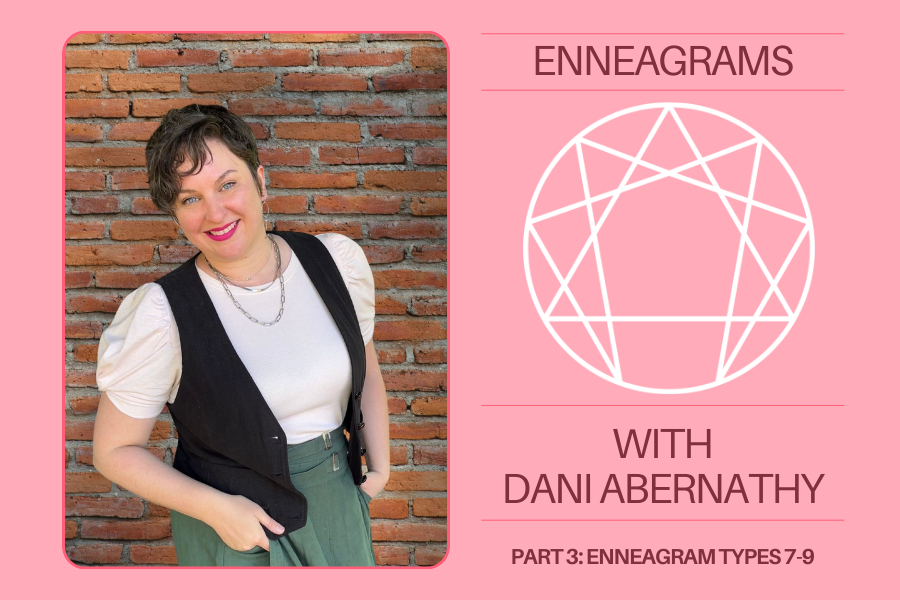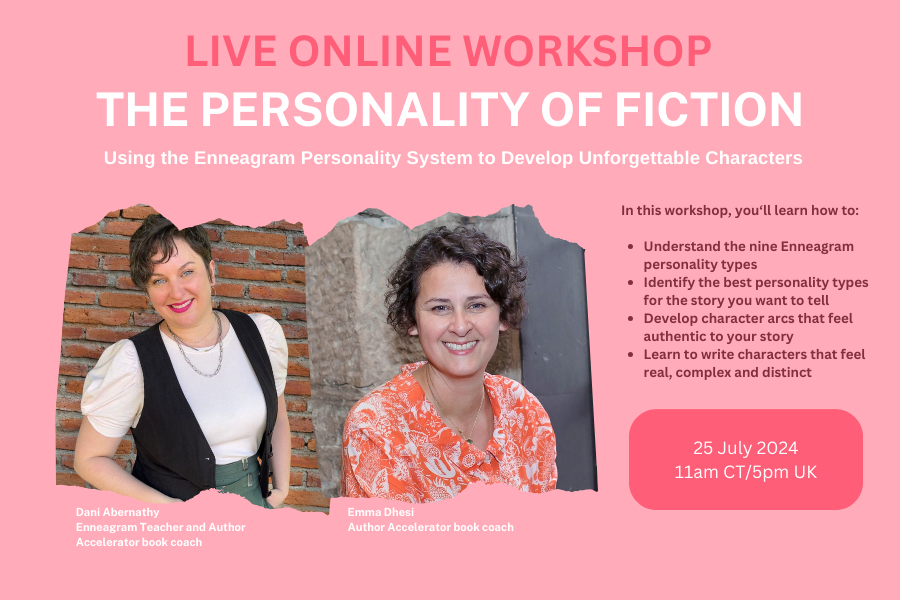Dani Abernathy recently came onto my YouTube Channel to share her expertise on Enneagrams. I thought it would also be helpful to share the transcript here as a series of blog posts.
In today’s post – Part 3 – Dani goes through Enneagram Types 7-9 but, if you missed Parts 1 and 2, you’ll find them here:
Part 1 – Enneagram Types 1-3
Part 2 – Enneagram Types 4-6
Alternatively, you can watch the whole conversation here on my YouTube Channel.
I’d love to know which type or types you recognise in yourself, so let me know in the comments!
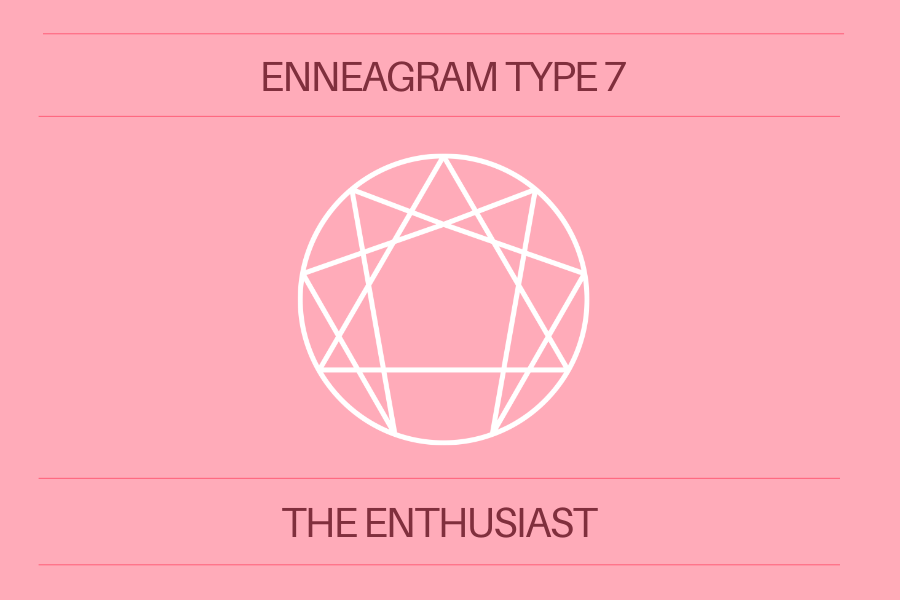
Enneagram Type 7 – The Enthusiast, or The Adventurer
Dani Abernathy: The 7 is called the Enthusiast, or the Adventurer, and they’re the last type in the head centre. They are afraid of being stuck in painful or boring situations so they do their best to avoid them.
All of the head types – 5, 6 and 7 – are always scanning and planning. 7s are always planning the next exciting thing because, even if they’re in a moment they’ve planned, they’re like, ‘Okay, this is boring. I’m losing interest in this so let’s plan the next thing.’ They tend to move from adventure to adventure.
They are visionaries, they are often eccentric or trendsetters. They can be really funny, so can the 6. Actually, a lot of comedians are the 6 because they feel really comfortable treading the line between humour and darkness.
7s can also be quite funny, they’re very vibrant and high energy. They know how to make everyone have fun but then they want to keep staying in the fun. They have a hard time finishing things, they have a lot of ideas but they’re not great at executing and following through so, in writing, they might have a lot of started projects but not finished projects.
Emma Dhesi: Shiny penny.
DA: That’s the biggest challenge for the 7 and also sometimes accessing that deeper, more raw layer of emotion and conflict and truth can be challenging.
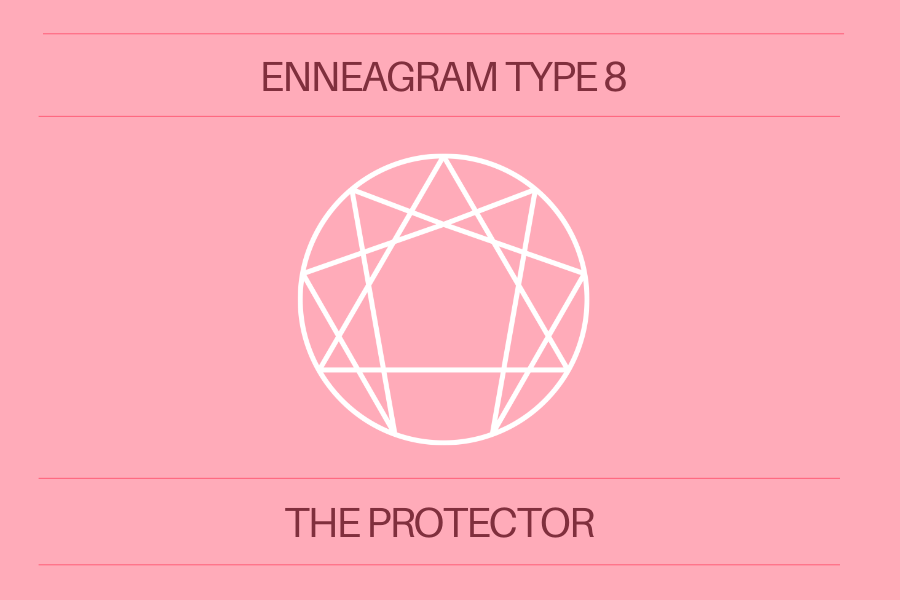
Enneagram Type 8 – The Protector
DA: 8 is the Protector. They’re in the gut type. 8, 9 and 1 are in the gut type and they move through the world through their instinct.
8s are afraid of being vulnerable or taken advantage of. They try their best to be invulnerable and to be in control. I think 8s are sometimes misunderstood because 8s can be very aggressive and controlling and like bears barrelling through a china shop.
But they’re not always that way. They tend to have really strong beliefs and this intuitive knowing. They’re either protectors of the weak or they really disdain people who appear to have vulnerabilities and weaknesses and they can actually take advantage of those and push those buttons.
They want to know the truth and so they will push people to reveal the truth. So, while the 9 is like the peacemaker, ‘Let’s be chill and have no conflict,’ the 8 is like, ‘Oh, conflict is where we live.’ They’re very comfortable being confrontational and saying the thing and having those conversations.
I don’t think I’ve had any 8 clients. Perhaps because 8s don’t want to ask for help. That’s very challenging for the 8 because it is a weakness or a vulnerability. I think probably the biggest challenge for the 8 would be getting feedback, getting help on the book because, to say that they don’t know or to see that it isn’t working or that they need to be vulnerable and let someone in, that is very, very challenging for the 8.
ED: That’s a hard place to be. I’ve certainly had times like that in my life and it’s only when you come out of it you realise, ‘If only I’d just asked for help, I’d have solved that problem much sooner.’ It can be a difficult thing to admit that we’re fallible.
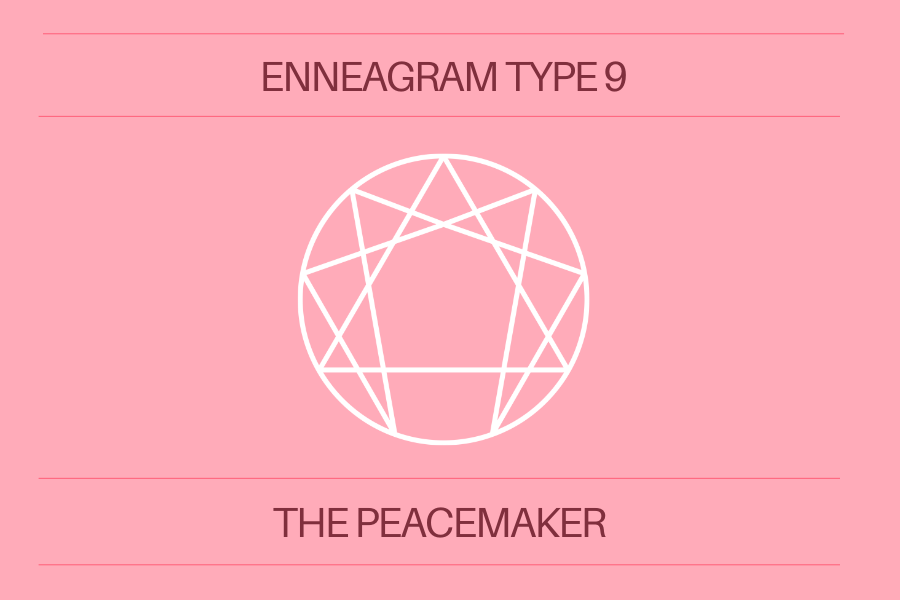
Enneagram Type 9 – The Peacemaker
DA: The 9 is the Peacemaker and they want to have peace in their lives. They want things to be in harmony, they don’t want there to be conflict and so the 9 tends to always speak to themselves to their own desires and just be like, ‘Whatever you want. Whatever you want is fine.’
They actually have really strong preferences on thoughts and personalities, but they appear to not, so they can sometimes be stubborn. 9s tend to be kind of dreamy, they really enjoy video games for example and they will get lost in world building because it is safe and they can create the world they want.
Sometimes, especially if the client also happens to have ADHD, it’s really hard for them to pull back and actually write the story because there are so many ideas and it’s so enjoyable to be in the ideas without having to commit and choose because that can potentially cause conflict.
ED: I’m curious then, from a coaching point of view, is that quite tricky? Obviously, as coaches, we want the writer to write their book, not lean into what they think we want. We can guide people, we don’t have all the answers for their story.
DA: The thing with the 9 is that they will be like, ‘Yeah, yeah, sure. For sure, yeah, let’s do that,’ but then they’re not actually going to do that. They’re going to dig their feet in and they’ll be like, ‘No, no, no. I’m going to do what I want to do. I’m just not going to acknowledge it to you.’
The way I work with people is a really slow, deep, writer-centred process and it’s really about who are you? Why are you writing? What do you care about? How do you want to speak to your reader and impact the world through your book?
For all of my clients, it is a slow process of discovery, finding the courage to acknowledge what you’re really writing about, what you really want to say. But the 9 can jump ship and switch to something else if it starts to feel dangerous.
ED: It is a bit of danger, isn’t it, when you write a book. You’re creatively putting yourself out there, the plotline itself might be going into dangerous territory that you often didn’t know you were going to end up in. It’s not what you thought you were writing about.
Which Enneagram Type are you?
ED: So that was a whistle stop tour and I’m guessing that our listeners, our viewers, they can see themselves in at least one of these. They’re going to recognise, ‘I do that. If something’s not working, I will stop it and I will move on. Perhaps I’m the Achiever, I’m number 3.’
I’m sure a lot of people will be recognising themselves in 5 and perhaps 9 and staying in that research rabbit hole where it’s fun and it’s all creative and not the graft of having to put the words down and write the story.
If we can see this in ourselves and we see, as you said in the beginning, why we do what we do, the ways in which it drives us, then I can absolutely see that this could be a wonderful tool to use in the writing itself and developing our characters.
Live Workshop: Using the Enneagram Personality System to Develop Unforgettable Characters
ED: You’re very kindly coming in to give a presentation about the Enneagram and how we can use it in our fiction and I wondered if you would just tell us a little bit about that.
DA: We’re going to have a workshop, The Personality of Fiction: Using the Enneagram Personality System to Develop Unforgettable Characters.
The wonderful thing about the Enneagram in your characters is that it gives you a shortcut to who they really are deep down inside. A lot of character tools are like, ‘What time of day do they get up? Do they like cats or dogs? What’s their pet peeve?’ and those things don’t really matter that much.
What really matters is who they are deep down inside, what they want, what they fear. When you know that, it changes the way you write them. It changes the way you think about their character arcs, how they interact.
It’s also a great tool because you can differentiate your characters. You can make them each distinct and individual. When you know their type, you know how they’re more likely to communicate or respond in a situation. Your characters are much less likely to conform to whatever the plot needs and really be consistent within themselves.
In this workshop, I’m going to tell you all about the Enneagram and I’m going to tell you about the types in detail. I’m going to give you some examples but I’m also going to give you tools to think about based on what you’re writing or who these characters are, how you can find their Enneagram types and use them to deepen your story, to write a more impactful story.
Workshop details:
The Personality of Fiction: Using the Enneagram Personality System to Develop Unforgettable Characters
When: Thursday, July 25, 2024
Where: Live on Zoom
Time: 11am Central Time, 5pm UK time, 2am Australian time (a replay will be available).
How to register: https://emmadhesi.thrivecart.com/enneagram/
If you love personality stuff and you’re the person who takes all of the personality tests, come to the workshop, you’re going to love it and it’s going to give you some new tools and also some new insights into yourself.
This workshop is going to revolutionise the way you’re writing, so sign up here: https://emmadhesi.thrivecart.com/enneagram/
If you missed the first two parts in this series, you’ll find Part 1 (Types 1-3) here and Part 2 (Types 4-6) here. The whole of our conversation is on my YouTube Channel.
Find out more about Dani Abernathy at www.daniabernathy.com.
I’d love to know which Enneagram Type you are, so let me know in the comments!
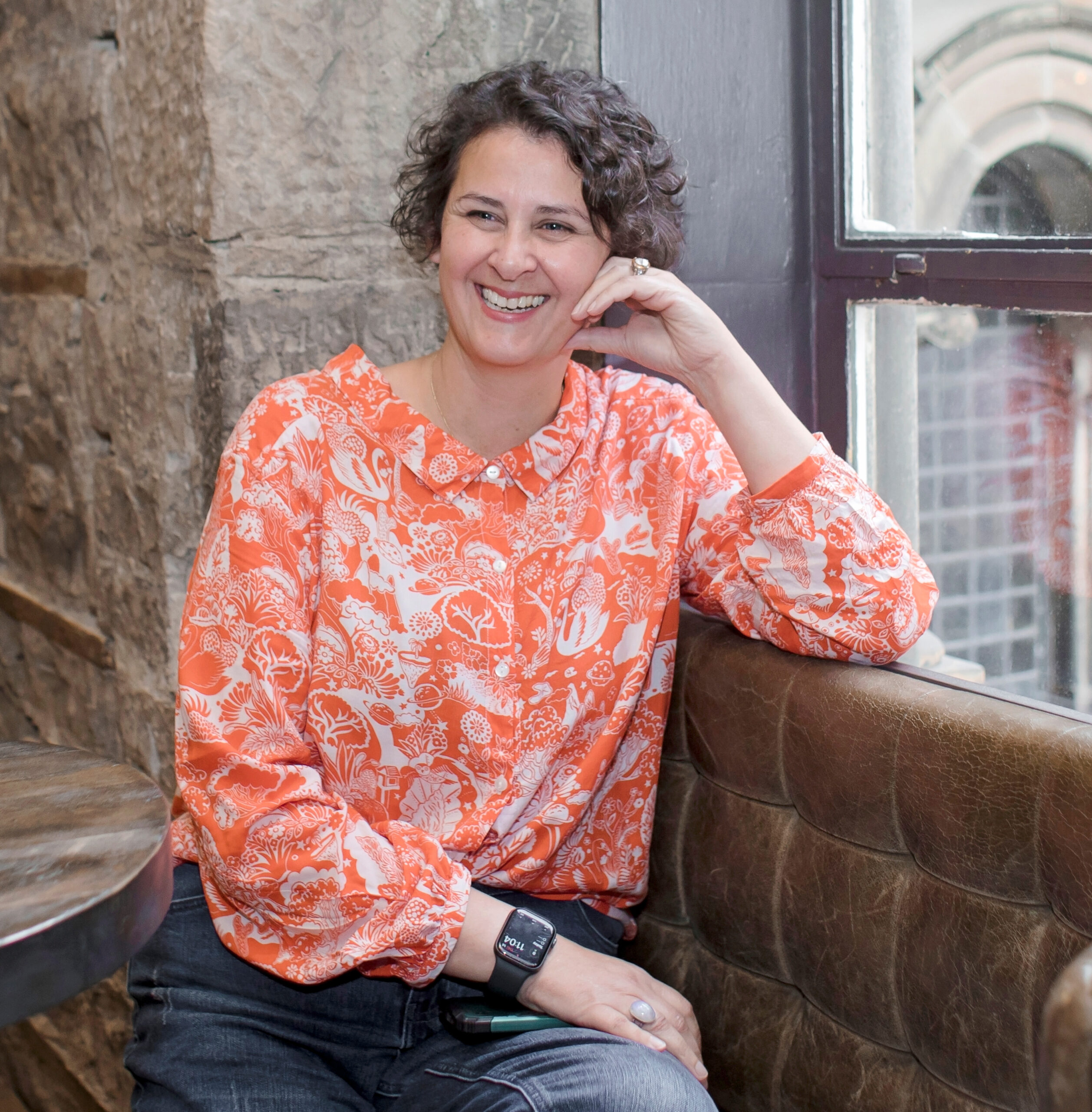
Emma Dhesi
Emma Dhesi is a Certified Author Accelerator Book Coach and bestselling author who helps writers let go of perfectionism, self-doubt and writer's block through her signature programme, Unlock Your Creative Block.
She is the host of the YouTube Channel, Emma Dhesi, where she interviews debut and experienced authors alike.
Through her 1:1 coaching programme, Emma helps new authors start and finish their first novel.
Emma provides personal written feedback on their pages and guides them through the emotional rollercoaster that is writing a novel!

